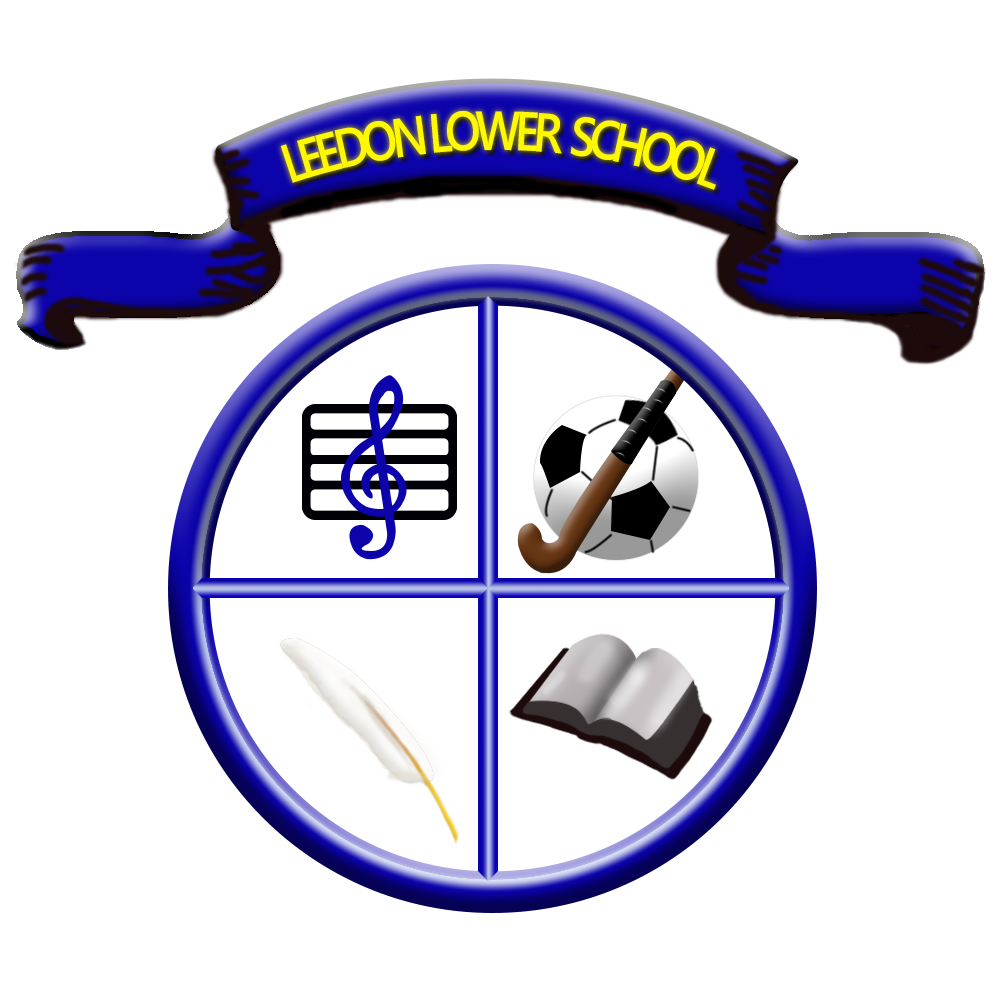Music
Music at Leedon
Intent
At Leedon Lower School, we provide learning which enables pupils to develop a love, appreciation and understanding of music from a wide span of cultures and times. Music is an important and valuable area of the curriculum which is accessible by all, opening up opportunities for creativity and personal expression, both personal and shared, both within school and in the community. Our aim is to provide a high quality, engaging and inspiring music provision that nurtures pupils in enjoying music and developing their talents as musicians, whilst giving them the building blocks to carry this love and skill forward into their futures. To achieve this as a school, we intend to:
- Ensure that the curriculum is accessible to all children that is relevant and engaging, whilst providing appropriate challenge and stimulus for self-development
- develop an empathetic approach to sounds in general, and in particular, those sounds organised as ‘Music’
- develop the capacity to express ideas and feelings through improvisation, performance, composition, listening and appraising
- develop musical concepts and skills such as singing, listening, and performing, whilst engaging in meaningful musical activity
- develop, through musical activity, personal and emotional involvement and a sense of achievement both individually and as a member of a group
- develop an awareness of music of a variety of musical traditions, cultures, and historical context
- provide additional opportunities to further extend and enrich musical experiences e.g. singing in a choir, taking part in extra-curricular activities such as Ukelele Group or Djembe Club, opportunities to see and hear live performances, and the opportunity for instrumental lessons e.g. violin or guitar
- to encourage pupils to sing and perform with enjoyment and enthusiasm from an early age, free from inhibition
Implementation
Through our new music scheme, Charanga, and topic work in our creative curriculum, pupils have the opportunity to perform, listen to, review and evaluate music across a range of historical periods, genres, styles and traditions. They learn to sing and to use their voices, to create and compose music on their own and with others and also have the opportunity to begin to learn a musical instrument.
Through music, pupils develop descriptive language skills whilst learning how music can represent different feelings, emotions and narratives. Musical vocabulary, such as pitch, tempo, timbre, dynamics, rhythm, beat, melody, is taught and modelled by staff within discrete music lessons and when discussing or talking about music.
Following the Charanga Music Scheme, children in KS1 enjoy singing songs and speaking chants and rhymes. They have the opportunity to play both tuned and percussion instruments which they use to create, select and combine sounds. They also listen and move to a wide range of music from different times, places and cultures.
Children in KS2 build on the skills acquired in KS1 so that, by the end of Year 4, they sing and play with increasing control and self-confidence. They deepen their understanding of music in the world and the significance of music through history. Children are encouraged to explore their own musical preferences and discuss these with confidence.
Music teaching is undertaken by the classroom teacher in all year groups. Teachers either follow the set scheme of learning provided by Charanga or they will select a topic specific scheme of work related to the pupil’s current learning.
Pupils from Years 1-4 are welcomed to join the school choir which rehearses weekly. A recorder club is offered to pupils in KS1 and Ukulele and Djembe Clubs are offered to children in KS2. Children have the opportunity in Year 2 to apply for private guitar or violin lessons, taught by our visiting peripatetic teachers. Pupils sing as a collective once a week in assembly and take part in yearly Carol Concerts in from of the wider community. Performance assemblies are held to give pupils who attend instrumental lessons a chance to perform to the wider school community and their parents. Annually, Year 4 pupils perform their own Carol Concert at All Saints church which is open to members of the public and parents are invited to watch. They also take part in the town’s Lower School Christmas Carols each year. Year 4 perform an end of year leavers show and have the chance to enjoy performing to their friends and families alongside their peers. Each year, the entire school travel to watch a professional pantomime and children are offered the chance to attend other professional performances outside of school when the opportunities arise, and enjoying listening to visiting professional musicians in school.
Impact
- Children will make good or outstanding progress in music
- Children will retain knowledge that is pertinent to music
- Children will use music specific vocabulary accurately and confidently
- Children will have the opportunity to foster their musical flare and express themselves through music
- Children will participate in wider musical activities
- Opportunities for improved well-being, self-awareness, self-esteem and confidence will be increased
- Children will develop wider audience performance experience
- Children will have the opportunity to widen their musical experiences both in and outside of school
Music Progression Map
Our Music Learning Keys can be found by clicking the link below:
